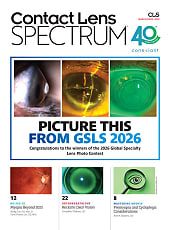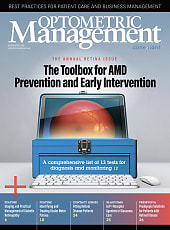A new proposal by the FTC would introduce new requirements for optometrists and ophthalmologists to follow when prescribing eyeglasses. Specifically, the proposed changes to the FTC’s Eyeglass Rule, which was issued in 1978, include requiring eye care professionals to get a signed statement from the patient confirming receipt of their prescription, and keeping a record of that confirmation for at least three years.
According to the FTC press release announcing the proposal, the changes would be made to “protect consumer choice by empowering them to decide where they fill their eyeglass prescriptions,” and to reduce the number of prescribers “failing to give [patients] their prescriptions automatically.” The FTC says this decision came after considering more than 800 public comments.
CHANGES TO THE EYEGLASS RULE
Per the new measures, the FTC is proposing to:
- Require prescribers to request that each patient sign an acknowledgement confirming they have received their eyeglass prescription, and to retain such confirmation for three years;
- Allow prescribers, with a patient’s verifiable affirmative consent, to provide the patient with a digital copy of a prescription in lieu of a paper copy;
- Clarify that a patient’s proof of insurance coverage will be deemed to be a payment for the purpose of determining when a prescription must be provided; and
- Change the term “eye examination” to “refractive eye examination” throughout the rule.
The proposal will be published in the “Federal Register” in early January 2023, after which consumers can submit comments for FTC consideration electronically or in writing for 60 days. The FTC’s press release on the Eyeglass Rule, which includes a link to the full “Notice of Proposed Rulemaking” for the rule, can be found at bit.ly/FTCEyeglassProposal .
To review, under the current version of the Eyeglass Rule, prescribers are required to provide patients with a copy of their eyeglass prescription immediately after an eye exam that includes a refraction, despite whether the patient requests it. Additionally, prescribers cannot require patients to buy eyeglasses as a condition of providing them with a copy of their prescription, place a liability waiver on the prescription, require patients to sign a waiver, or require patients to pay an additional fee in exchange for a copy of their prescription. Prescribers further cannot refuse to perform an eye exam unless the patient buys eyeglasses, contact lenses, or other ophthalmic goods from them.
AOA RESPONSE
American Optometric Association president Robert Layman, OD, released the following response:
“Independent doctors and small- to mid-sized health care practices deliver essential care and make our communities healthier every day. Despite this, we too often see — and have to work to defeat — proposals in Washington, D.C., to impose costly new burdens that threaten practices and quality care.”
He further added: “The recent Federal Trade Commission (FTC) public announcement marks the beginning of the government’s once-per-decade update of regulations connected to eye health and vision care. Already, the AOA’s concerns — we have been active on this for months — about harmful new mandates involving pupillary distance, prescription verification, and duplicative paperwork have been accepted. These important wins must now be held. At the same time, we immediately see that the agency needs to hear more from our profession about our compliance with prescription release requirements.”
Dr. Layman says any updates on the AOA’s effort would be shared on aoa.org , and that those interested in joining the AOA’s advocacy effort could email president@aoa.org. OM



